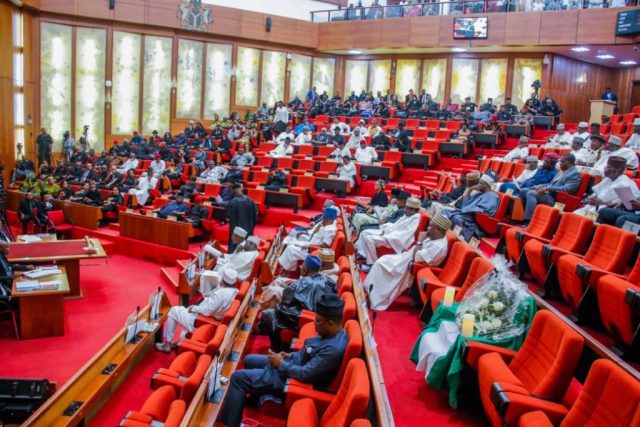The Senate urged the federal government to permit the importation of Cement as a temporary fix.

The Senate has decided to investigate the country’s rising prices for cement and other building supplies.
To determine whether monopolistic or market manipulation tactics are to blame for the price increase, the Red Chamber instructed its Committee on Industries, led by Senator Francis Fadahunsi (APC, Osun East), to look into the operations of the nation’s cement manufacturing industries.
Additionally, it directed the committee to make sure cement manufacturing companies strictly follow fair market principles and refrain from setting anti-competitive prices.
These resolutions followed the adoption of a motion titled “Need to urgently address the increase in cement prices and other building materials in Nigeria,” sponsored by the Senate Deputy Leader, Senator Oyelola Ashiru (APC, Kwara South), during Wednesday’s plenary.
Ashiru, who came in under Order 42 on personal explanation, said that the construction industry was vital for infrastructure development, and economic growth heavily relies on cement and other building materials for its sustenance.
He voiced concern that numerous national development initiatives have been severely impeded by the recent trend of the product’s price rising practically every day.
READ ALSO: “Halt all plans to increase electricity tariff” – Senate to FG
The lawmaker claimed that essential building supplies, in particular cement and iron rods, are currently being sold at prohibitively high prices. The price of a bag of cement increased from N5,500 in January 2024 to approximately N14,000, and the price of an iron rod increased from N8,500 to N17,000.
Ashiru, who pointed out that cement raw materials are 100% sourced locally rather than imported, expressed concern that the abrupt and sharp price increase is negatively affecting housing, critical infrastructure, and state-funded projects for our own constituency across the nation.
He said: “We are cognisant that affordable cement and other building materials are indispensable to national development, addressing the issue in time will be advantageous to the construction industry because it will ensure the progress of constituency projects and strengthen national security by providing jobs and stability and improve the livelihood of Nigerians generally.”


